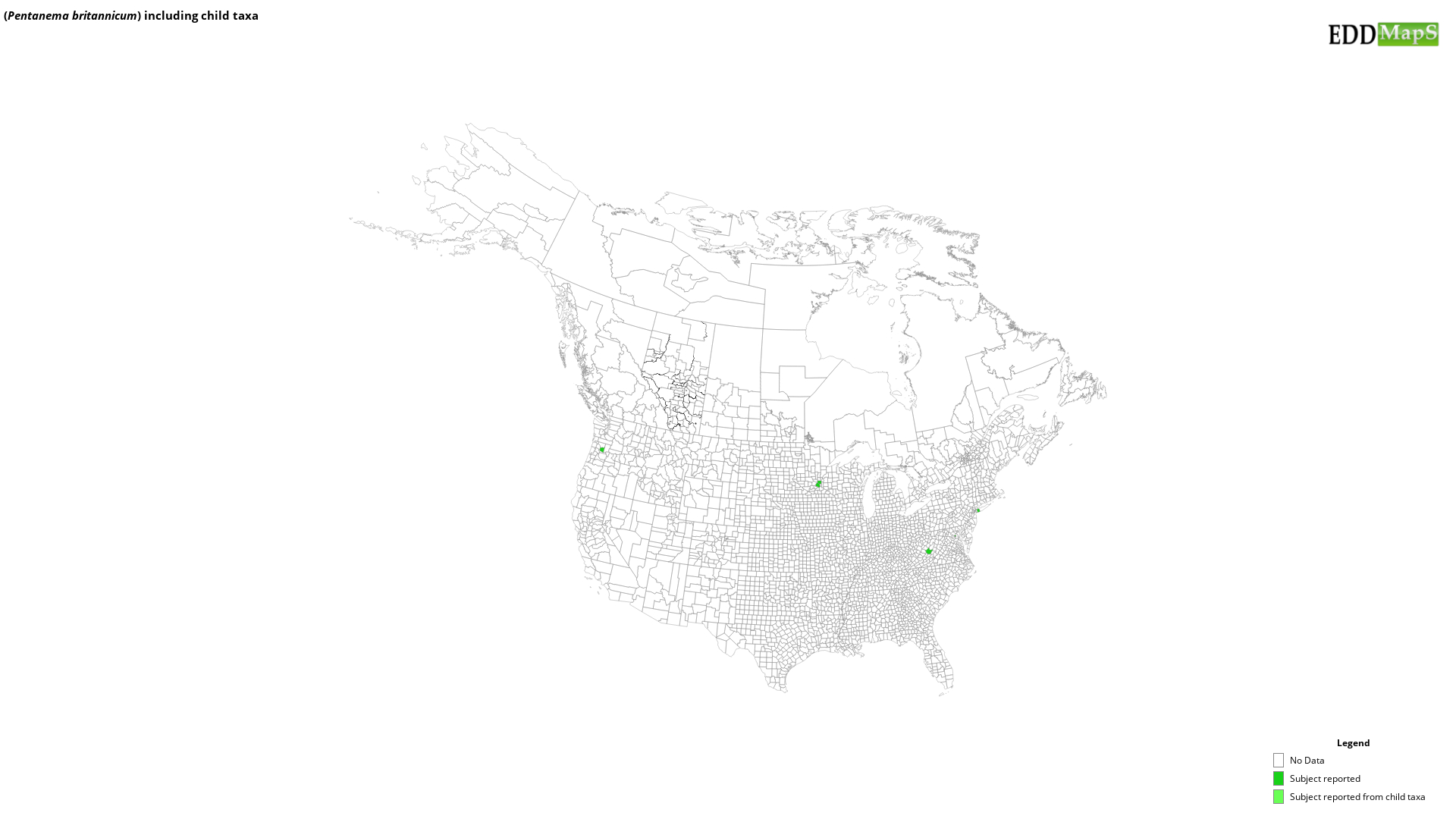British yellowhead
(Pentanema britannicum)
This species is Introduced in the United States
Appearance
Inula britannica is an erect herbaceous plant that grows from 6-30 in. (15-75 cm) tall. The stems may be densely covered with appressed (pressed close against the stem) hairs or it may be almost hairless. It can be biennial or perennial. I. britannica is native to temperate and tropical Asia and Europe.
Foliage
The lanceolate to elliptical leaves are sessile and may become clasping towards the top of the plant. The adaxial leaf surface is sparsely pubescent while the abaxial surface is densely pubescent surface. The leaf margins may be smooth or finely toothed.
Flowers
Both ray and disk flowers of I. britannica are yellow. Flowers can occur alone or in clusters of two or three. The flower heads range from 0.8-1 in. (2-5 cm) across. Rays are long and narrow. Two linear rows of soft green bracts are much shorter than the rays.
Fruit
Fruits of I. britannica are achenes. The white pappus has 20-25 distinct bristles.
Ecological Threat
Inula britannica has been reported in eastern Canada and the northeastern United States. It can reproduce by seed, short rhizomes, and root fragments. The USDA gave it a high rating as very likely or certain to be introduced to new areas.
Selected Images
Maps
EDDMapS Distribution - This map is incomplete and is based only on current site and county level reports made by experts, herbaria, and literature. For more information, visit www.eddmaps.org
State Lists - This map identifies those states that have this species on their invasive species list or law.
Invasive Listing Sources
Taxonomic Rank
| Domain: Eukarya |
| Kingdom: Plantae |
| Phylum: Magnoliophyta |
| Class: Magnoliopsida |
| Superorder: Asteranae |
| Order: Asterales |
| Family: Asteraceae |
| Subfamily: Asteroideae |
| Tribe: Inuleae |
| Genus: Pentanema |
| Pentanema britannicum |


